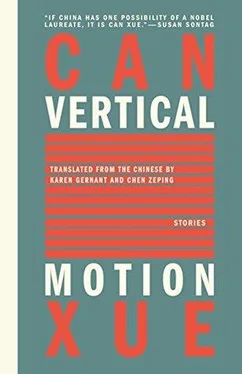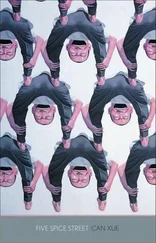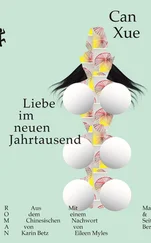Ah, this lovely thing has run through my entire life! That treasure sparkling in the sunlight, that magic-like spinning, brought me so much joy. At the time, I secretly planned to become a cotton candy vendor when I grew up. This old woman’s absorption and calmness while she worked were mystifying. Even with my enthusiasm running so high, I was sometimes distracted — for example, when an old crow flew past, or when my parents yelled at us to go home for dinner. But this old woman: after she set up her “black pot” and her customers lined up in front of this contraption, she lowered her eyes and never looked up. I thought that each ball of cotton candy was so marvelous because it was inseparable from her frame of mind. What kind of person was this old woman with hands like bark?
I’ve eaten cotton candy just twice. It was the most mystifying experience on earth. When I put that soft, transparent, fluttering white thing in my mouth, it vanished like air. It had no taste. I knew I’d seen that cotton candy was made of sugar, so why didn’t it taste sweet? I asked Amei and Aming, but they both laughed at me and said I was “miserable.” In my anger, I started ranting and raving, and they ran off.
But the cotton candy that those children ate certainly was flavorful. If they were eating only air, they wouldn’t make such a scene in front of their parents, demanding a few pennies to enjoy this kind of thing. I understood them. Maybe something was wrong with my taste buds. Later on, I brazenly asked my parents for a few cents, and this time I bought a small pear-shaped one. I tasted it gingerly. I saw this thing melt little by little on my tongue, and still I tasted nothing. It was so unfair: Had the old woman played a trick on me? It didn’t seem so. She treated me the same as everyone else. And, after all, she didn’t know me: she had never laid eyes on any of us.
My extreme dismay touched off endless daydreams. If I amassed some capital someday and became a vendor, maybe I could shake cotton candy out of the air. I was excited about my brainchild: at midnight, I smiled happily. I would shake out the most beautiful cotton candy, and it wouldn’t be white, either. It would be a color I couldn’t even imagine. It would be many times more beautiful than the rainbows in the sky or the coral in the sea. And the flavor certainly would not be a sugary taste, but would be a sweetness that had never existed before. It would be better. No, I couldn’t imagine what it would be better than.
=
The old woman finally went bankrupt. She had made so much money every day, how could she have gone bankrupt? I didn’t get it. She still came to our street to make cotton candy. Children lined up in an orderly fashion. When the first one in line paid his money, she bent her head and started shaking her contraption. She no longer had any white sugar. She was shaking air. Everyone started guffawing. Distracted for a moment, she brought her other hand — the one that was gripping the money — up to her face and stared at it carefully. The child who had given her the money quickly grabbed it from her and took off. She wasn’t angry: she just clutched the crank again and shook the air. She didn’t even look at us.
Feeling sorry for her, I rushed home and pilfered a small jar of sugar. I shoved my way through the crowd and placed the jar of sugar on the old woman’s chopping board. I had barely turned around when I heard a sound: the old woman had swept the jar to the ground. In a frenzy, the children grabbed the sugar that had fallen on the ground. The old woman was still shaking her contraption, her wooden face expressionless. The children whispered that she’d gone “crazy.”
As the days passed, fewer and fewer children crowded around. Finally, no one came any longer to watch her crazy activity. I was the only one who was reluctant to leave, and I observed from one side. Sure, I also ran off sometimes, because I had to help out at home and because of other temptations. But for some reason, I kept thinking about this. I felt vaguely that if the old woman would just go on shaking her contraption, a shiny white treasure would surely emerge from it. Perhaps she hadn’t really gone so bankrupt that she couldn’t even buy sugar. Maybe she had deliberately chosen not to use sugar. Otherwise, why would she have knocked the sugar jar I gave her to the ground?
=
One day, after I had helped my family fetch water, I came here. She looked like a fossil sitting motionless on a wooden stool. This was a rare sight. It was drizzling, and she was drenched. In the past, she would move her contraption under the tea shop’s awning as soon as it began raining. I felt nervous. What on earth had happened? Could she have died? I moved closer to get a better look at her face.
“No matter how much energy you put into your work, the hungry ghosts will eat everything you make.”
She said this abruptly, but even her mouth was motionless. How had she spoken? Maybe these words were just the thoughts in her head and I could actually hear her thoughts.
The contraption was already thick with rust, and a hole had rusted out in the sheet iron. Scared stiff, I shook the rusted crank. Suddenly, that crank made a frightening vibrating sound, and my mind went blank. I fell down on the ground. I tried hard to remember, but I had no idea what that sound was. It felt as if I’d been shut up in a secret metal room and someone had hammered on a piece of armored plate. No, this sound was even worse: it could make a person lose his mind.
It took a long, long time for me to recover. When I looked up, the old woman had disappeared. Under the contraption was a large ball of multi-colored cotton candy. A dirty hand grabbed it right away and took off. The owner of the hand was the little girl Amei — that sick little kid. She ate it as she ran off. In the blink of an eye, the cotton candy dissolved in her mouth. When I caught up and seized hold of her, she opened her big mouth and started crying.
“Shake out one just like it and give it to me!” I ordered.
Whimpering, Amei nervously went back to the contraption. She was short, so it was only by standing on tiptoe that she could reach the crank. I stopped up my ears with my fingers.
The strange thing was that Amei wasn’t the least bit afraid of the sound that the contraption made. She kept shaking it as hard as she could. Perspiration beaded her face. When she stopped, however, no cotton candy appeared. Standing on the small bench and manipulating this contraption, Amei was the picture of health — as if she weren’t sick at all. She was like a little hero — arms akimbo — looking at me.
I peered under the contraption and saw that a few gears and screws had fallen off. I concluded that this contraption was ruined, so I paid no more attention to Amei. I lazily dragged myself home. Dad was at the front door scolding me, for I was supposed to be helping carry the groceries.
=
It was a long time before I could figure out what had happened. I kept seeing the old woman sitting, unmoving, in front of a pile of rags. If I approached her, a sound came out of her chest. By fits and starts, that sound sometimes spoke of her past glory, and sometimes it was only a string of curses. Once, I smelled an odor on her body. Startled, I felt her forehead. She lifted her eyelids to look at me. Her strange gaze frightened me. In the deep recesses of my dark memories a lot of little jars were being opened, and floating in the air was the fragrant scent of honey. I opened my mouth and said an irrelevant word: “Chasing.” The word interrupted my memories. Just then, the old woman’s gaze fell away, and she didn’t look at me again.
I saw Little Zheng and the others take the gears from beneath the contraption. They said they could make tops to play with. And so one day, in the strong sunlight, we played with the tops until perspiration ran off us like rain. But even this exciting game couldn’t satisfy me. In the evening, we grew tired of playing with the gears and threw them into the river. “This is boring! This is boring!” Little Zheng and Little Ying were wailing. I suggested that we visit the old woman. But when we arrived, she wasn’t there. Only then did I remember that every time I’d seen her, I’d been alone. When I asked Little Zheng if he had seen the old woman, he was baffled. He said they hadn’t seen her for a long time. They didn’t believe that the old woman could sit on a pile of scrap iron every day. They said something must be wrong with my eyes. Long after Little Zheng and the others had left, I stood there examining the scrap iron. I even considered appropriating it and taking it home. Naturally, I didn’t dare; if I did, Father would kill me.
Читать дальше












